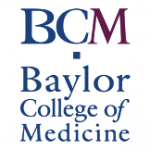Francesco J. DeMayo, Ph. D, Baylor College of Medicine, Dan L. Duncan Cancer Center in Houston, TX
 Francesco J. DeMayo, Ph.D.,
Francesco J. DeMayo, Ph.D.,
Professor, Baylor College of Medicine
Ph, D. Michigan State University, East Lansing
Postdoc, Baylor College of Medicine, Houston, TX
Molecular regulation of cellular differentiation and physiology
The goal of my laboratory is to investigate the molecular regulation of cellular differentiation and physiology. This research is conducted on two model organ systems, the lung and uterus. Although these two tissues are significantly divergent in their biological functions, many of the molecular mechanisms regulating the cellular differentiation and physiology are conserved. In order to investigate the biology of these tissues, my laboratory has manipulated the mouse genome to generate novel animal models to identify molecular mechanisms regulating the cell biology of these organs.
The lung is composed of 40 different cell types. This makes the lung an interesting organ to investigate the developmental control of cellular differentiation. The pulmonary cell types my laboratory is interested in investigating are the Clara cells, the neuroendocrine cells and the alveolar type II cells. Clara cells are the non-ciliated secretory cells of the pulmonary epithelium. My laboratory has used transgenic technology to execute in vivo promoter analysis to investigate the molecular regulation of Clara cell gene expression. The information gained from these studies has allowed us to generate an animal model for lung cancer, to generate cell lines to further investigate the elements regulating Clara cell differentiation and finally to determine how elements involved in lung development play a role in the regulation of the response of the Clara cell to environmental challenges. In the investigation of the factors that control neuroendocrine cell differentiation, my laboratory is interested in identifying what factors regulate this process as well as determining the role of these cells in damage and repair of the pulmonary epithelium. We have shown that the transcription factor, achaete scute, can cause a transformed Clara cell to express markers of neuroendocrine differentiation in vivo. Finally, in the investigation of the biology of the alveolar type II cell my laboratory has developed an transgenic “Gene Switch” system to investigate how growth factors which are involved in regulating lung development can function to regulate the biology of the alveolar type II cell in the adult.
The uterus functions to support the development of the fetus. The ability of the embryo to attach and thrive in the uterus is under tight hormonal control. Ablation of the receptor for the steroid hormone progesterone has demonstrated that this hormone is critical for the uterus to initiate and support the implanting embryo. My laboratory is interested in understanding the cascade of events regulated by progesterone. This is being accomplished by using current techniques in gene expression analysis to determine which genes are regulated by progesterone. Finally my laboratory is generating novel approaches to investigate the role of specific genes in uterine biology in vivo.
The overall goal of the above investigations in the understanding of the molecular regulation of cellular differentiation and physiology is to shed light on pathways to aid in the diagnosis and treatment of human disease. Understanding the molecular regulation of pulmonary cell differentiation will help design treatments for pulmonary diseases such as lung cancer, and asthma. The investigation of uterine biology will aid in the treatment of infertility.
Francesco J. DeMayo, Ph. D, Baylor College of Medicine, Dan L. Duncan Cancer Center in Houston, TX from TEAM DRAFT on Vimeo.